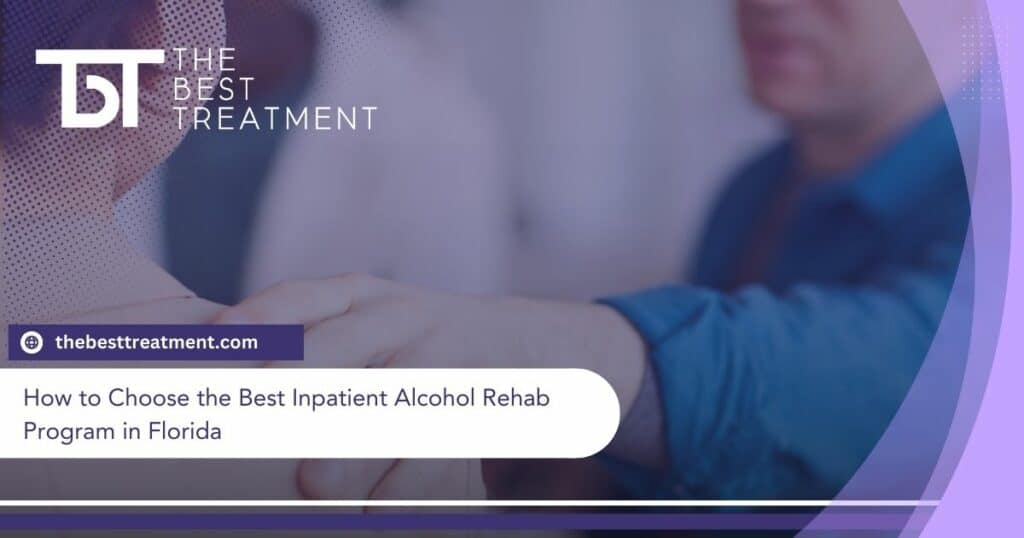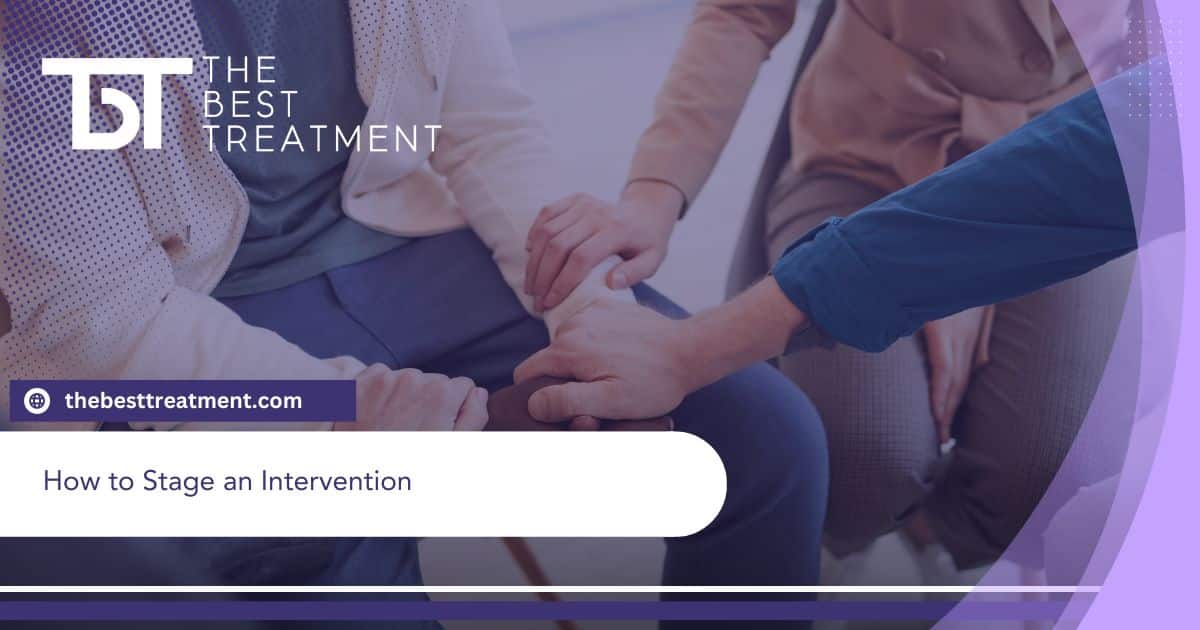Table of Contents
Drug and alcohol addiction can have profound and sometimes devastating consequences on a person’s life. Substance abuse can cause significant changes in a person’s emotional and physical health, as well as their behaviors.
Living with an active drug and alcohol addiction is often very challenging. Those who love an addicted person also feel the effects of addiction and can face serious disruptions and emotional turmoil.
If you love someone with drug and alcohol addiction, feelings of anxiety, guilt, anger, and more may feel familiar to you. You may wonder what to do as you watch your loved one struggle with substance abuse and its consequences. It can be difficult to know when to speak up, what to say, and what steps you can take to help someone with an active addiction.
Staging an intervention is one option you may consider. An addiction intervention is a carefully planned conversation between an addicted person and their loved ones with the intention of convincing the addicted person to seek addiction treatment right away. Thoughtfully planned interventions can help someone living with addiction to recognize the severity of their substance use and realize they need help.
Planning an intervention can be challenging, but it also provides supportive loved ones a concrete way to express love and set boundaries. This article will explore what happens during an intervention, how to stage one, and where to find comprehensive addiction treatment. Reach out to the team at The Best Treatment now to learn about our supportive programs or to schedule an intake assessment.
What Happens During an Intervention?
Put simply, an intervention is a carefully planned meeting where friends, family members, and other concerned loved ones gather to show love and support to a person living with addiction. During an intervention, the addicted person’s loved ones take turns sharing about how their substance abuse has impacted their relationships. As a group, they set boundaries, provide a treatment option, and ask their loved one to accept help immediately.
An effective intervention depends on careful planning and plenty of preparation. The primary goal of an addiction intervention is to convince a person with addiction to seek treatment immediately. When an intervention is successful, the person is transported directly to the treatment facility.
There are many steps you can take to stage an effective intervention. Hiring a professional interventionist can help you and your team before, during, and after the intervention. But whether you work with a trained interventionist or not, it’s crucial that you carefully plan your intervention.
A Step-by-Step Guide to Planning an Intervention
An intervention is an act of love and support but is also a highly detailed process. Taking the time to plan, prepare, and practice ahead of time can increase the likelihood that your intervention will be successful.
Here are some steps to take to stage an intervention.
1. Get support
Whether you know a lot about addiction or are new to the subject, you must find professional support to help you stage an effective intervention. There are many places to find the support you need when planning an intervention, including:
- Local addiction treatment center staff
- Substance abuse counselors
- Social workers
- Medical professionals
- Professional interventionists
Emotional and practical support is crucial when planning an intervention so that you can navigate this complex, often emotional process.
2. Choose your team
An intervention team includes all the people who will be present during the intervention. Your team should consist of:
- Close friends
- Family members
- Close, supportive co-workers
Interventions can often be emotional or highly-charged events, so carefully consider who will be part of your team. It may not be appropriate to include young children, elderly loved ones, or people struggling with active addiction.
3. Plan
Think about where and when you will hold your intervention. Choose a time and location that will give your team the space and privacy you need. Select a time when your loved one is least likely to be intoxicated.
4. Educate yourself
The more you know about addiction, treatment, and recovery, the better. Consult with an addiction counselor, professional interventionist, or doctor about what to expect during treatment and recovery. Read books and information from trustworthy online resources. Understanding addiction as a disease will give you more insight and compassion into your loved one’s condition and help you stage an effective intervention that conveys love and support.
You will also need to research local treatment options and find a facility with immediate availability. If your loved one agrees to get help, it’s crucial to have a treatment option lined up and ready to accept them.
5. Write your statement
Each intervention team member should write a personal statement about how your loved one’s substance use has affected them. After writing down your thoughts, read them out loud several times so that you can make any necessary changes and feel comfortable sharing them during the intervention.
6. Set your boundaries
Your intervention team must determine the boundaries you’ll enforce if your loved one does not accept your offer of treatment. Boundaries may include:
- Not allowing the addicted person to live with you
- Not giving them money
- Refusing to bail them out of jail
- Refusing to cover for them at work
- Holding them responsible for breaking the law
Everyone on the team must agree to these consequences and commit to enforcing them if necessary.
7. Practice
Before holding the intervention, practice it from start to finish at least once. Addiction interventions can be emotional events, and practicing them beforehand can help your team stay on track, even when intense feelings arise.
Working with a professional interventionist can help you manage your expectations and ensure the highest chances of success. It’s essential to have all the support you and your team need before, during, and after the intervention to have the best outcomes for everyone involved.
Learn More About How to Stage an Intervention
If you love someone with drug and alcohol addiction, you are not alone. Reach out to the caring specialists at The Best Treatment now to learn about staging an intervention, connect with support, or learn about our comprehensive treatment programs.
Medically Reviewed: September 25, 2019

All of the information on this page has been reviewed and verified by a certified addiction professional.










